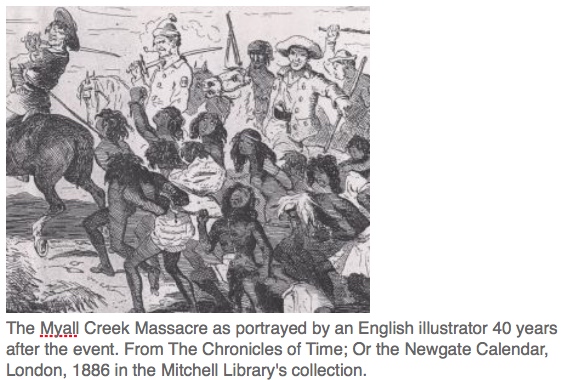Donald Horne, The Lucky Country – Australia in the Sixties, Angus and Robertson, 1965 (first published in 1964)
pp. 32-33 ‘What often perishes altogether – in the bureaucracies of business or of government or in the universities and in such intellectual communities as exist – are originality, insight and sensitivity, the creative sources of human activity. In an imitative country no one has to be creative; the creative person is likely to be confronted with distrust – not perhaps in science or the arts, but almost everywhere else…With their distrust for Australian originality and their ignorance of the world the men who run Australia often have a peculiarly narrow view of ranges of the possible…It is not the people who are stupid but their masters, who cling to power but fail to lead.’
46 ‘The official beliefs of Australians are essentially humanist’
47 ‘Anzac Day (the Australian folk festival)…The beliefs associated with Anzac are more Stoic than Christian.’
56 Horne paraphrased the diary entry of Mrs. Marcel Dekyvere, chairman of the Black and White Ball Committee (in 1964) in response to a sermon titled ‘I Have a Dream’ – ‘We must all keep our dreams, even if sometimes they don’t come true. Don’t you agree?’
Martin Luther King gave his ‘I Have a Dream’ speech on 28.08.1963
61 ‘discussion on Australian literature is sometimes better informed in the American universities that have taken it up than in some of the Australian universities.’
76 ‘On 27 December 1941, John Curtin made the single most significant statement ever made by an Australian Prime Minister: “Without any inhibitions of any kind, I make it quite clear that Australia looks to America”.’
81 ‘Menzies was more British than the British, always running several years behind London, expressing dreams of Commonwealth that had something of the flavour of progressive discussion in 1908.’
On Australia’s relations with the U.S. Horne wrote ‘Australians are used to being insignificant and relying on the power of others.’
83 ‘it seems likely that Australia could enter into a quite massive relationship with America without generating any politically effective anti-Americanism among ordinary Australians’
Australians are suspicious of all idealism: ‘What’s in it for him?’
I would add that Australians pride themselves on their cynicism, failing to distinguish between what it is – a corrosive poison – and a healthy skepticism.
88 ‘In the past Australia has also displayed the other side of provincialism: the boastfulness and arrogance of the liberated province, parading its very provincialism as if it were homegrown.’
101 ‘Despite its internal democracy, Australia plays an aristocratic role in the society of Asia – rich, self-centred, frivolous, blind…Given the huge area it has to defend, Australia is defenceless against a major power.’
‘There is not very much real feel for Asia (in Australia).’
107 The words ‘White Australia Policy’ were removed from the Labor Party platform in 1965.
112 ‘if Australia is to play a more forceful role in Asia the change must be dramatic enough to impress Asians that it is a change. It would seem a comparatively simple method to enter into migration agreements with Asian countries that might meet any of their own fears and that would set up clear public standards of assimilability – of language, education and working capacity…My own view is that the future holds dramatic possibilities for Australia which may necessarily include racial change, that this is Australia’s ‘destiny’. It is going to happen one way or the other. It is a task that will be undertaken either by Australians, or by someone else.’
120 ‘Of the top hundred Australian firms at least two thirds are overseas controlled.’
121 ‘Not that Australia has ever spent much on research and development anyway…This indifference to research and development goes beyond the question of foreign ownership.’
122 ‘The very idea of clever, expert men thinking up new things to do is one that is repulsive to many Australian businessmen…in such matters Australian businessmen often treat their own countrymen with the scorn that the colonialists used to treat those they exploited: you can’t expect the natives to have ideas.’
125 Horne on the suspicion of Australians to original Australian ideas
130 ‘Several generations of Australians were taught to venerate not lions or eagles or other aggressive symbols of nationalism; they were taught to venerate sheep.’
136 ‘the things modern Australians are really interested in – getting homes, raising their children, going on holidays.’
Horne went on to add: ‘What one does witness in Australia is…”the institutionalisation of mediocrity”…established rhetoricians and ideology makers’
145 Australia took its federal structure from the U.S. – with a House of Representatives, a Senate and a federal court that interpreted a written constitution.
146 In certain senses, Australia is a province of two external powers (the UK and the US).
Still clutching at the skirts of Mother Britannia, Australians, in an Asian sphere, cling to the coat-tails of Uncle Sam – the latter two nations generated from the first. The pervasive shame associated with this Australian servility is the source of the projection known as ‘tall poppy syndrome’ – ‘Because I am on my knees, I will ensure that you are on yours!’
177 ‘if intellectuals wish to walk down the corridors of power in Australia they must leave their intellectuality at home. As in business, to pretend to some stupidity is safest.’
190 Exposing the often repeated excuse – that ‘we are only a small nation’:
Horne, quoting Irving Kristol’s review of the first edition of The Lucky Country, emphasised the importance of leadership that could enable a people to create ‘better than they know’ and of appreciating their creation, without which that people would not only be far poorer in their self-definition but would be blissfully unaware of their poverty. Leadership enables the discernment of a promise and a potentiality that becomes integral to their way of life.
Part three/to be continued…










